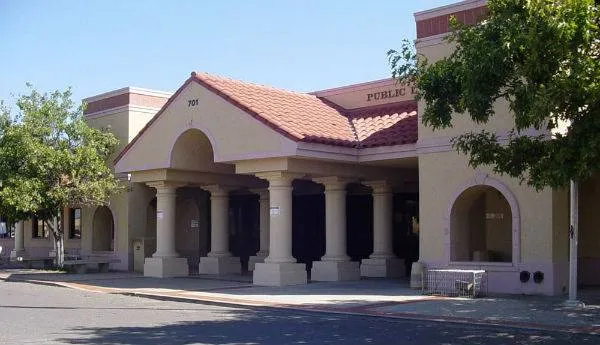
The Psychological Stress of the Clovis-Carver Public Library Shooting
It’s been a little over a week since the mass shooting at the Clovis-Carver Public Library in Clovis, New Mexico, and I, like many librarians, am still reeling from seeing one of my worst nightmares play out on the news. Over the last few years, I’ve watched mass shootings happen in movie theaters, elementary schools, and night clubs, and worried that someday it would happen at the library. And now it has, and two librarians have paid with their lives.
I read a lot of comments from people who couldn’t believe that something like this could happen in a library. Libraries are supposed to be safe havens, where parents can bring their children without worry and where patrons can read and research without hassle. But libraries are not immune from the world outside its walls, and if we’re going to talk about libraries in the 21st century, we have to talk about security and how drastically this impacts library services. Fellow Book Rioter Katie MacBride wrote a fantastic piece on library security earlier this year for Lit Hub, and I highly recommend that everyone read it. What I want to address here is the psychological toll that these types of security threats can take on librarians.
I’ve worked in a public library for 6+ years, and in all of that time, I have always had a public-facing role. I have had many wonderful encounters working with the public, but I’ve also had some very alarming ones. I’ve had to call 911 on multiple occasions to report fights and medical emergencies. I’ve had patrons scream insults and racial slurs in my face. I’ve had men follow me into the shelving area and make increasingly uncomfortable comments about my appearance. I’ve had patrons unexpectedly take photos of me while I was shelving books or helping another patron at the circulation desk. And in one of my more memorable instances, I had to call 911 on a violent fistfight happening 50 feet away from my desk, all in the midst of trying to help a patron over the phone and three others in front of me, wondering what I would do if one of the people involved in the fight suddenly pulled out a weapon.
I mention these incidents not because they happen more frequently than positive patron reactions, but because they can have a significant psychological impact on library employees, particularly if there’s no training or procedure in place to handle incidents like this. In the first few years at the library, I would run through “What-if” scenarios in my head. What if a fight broke out? What if a patron followed me back to my office? What if a patron followed me to my car after work? What if someone came into the library and fired a gun? How would I react? Where would I go? Would I call the police first or would I run?
It’s one thing to be prepared, and it’s another thing to have these scenarios running through your head on a constant loop. I was bracing myself for a fight every time I walked out to the desk because I wasn’t trained on what our procedures were, and so I had to train and prepare myself every day just to get through a two-hour shift at the desk. This was exhausting and disheartening and I know my work at the desk suffered but I didn’t know what else to. I finally reached a breaking point after several years and emailed my manager to say, “We need to have some serious organization-wide discussions about how to handle security issues.”
Several years later, the situation has improved tremendously for us with a fully staffed security team, administrative support, and frequent discussions about safety issues and staff training, but I know this isn’t the case for every library. There’s an automatic tendency to keep security discussions to a minimum, whether because we don’t want people to unnecessarily worry or because we’re afraid of drawing attention to problems like these when libraries are already facing significant funding cuts, but we’re doing our profession a disservice by sweeping these incidents under the rug and pretending that they’re isolated cases, and we’re doing our librarians a disservice by not acknowledging the psychological stress that these incidents create. We can’t begin to fix what we don’t talk about, and for every well-meaning comment that “Oh, those things don’t happen that often at the library,” or “We just need to focus more on the positives of librarianship,” there’s a library employee who gets a little bit quieter (and a lot more frustrated) because they are afraid that discussing safety problems in the library runs counter to the mission of the library itself.
In recent years, many libraries have undergone significant safety training procedures, such as active shooter training or how to administer medical aid for opioid overdoses, but many have not. And with the shooting at the Clovis-Carver Public Library, I have to wonder what the response will be as a profession. Will we start having these conversations more frequently and more consistently? Will we start addressing the psychological toll that many librarians face on a daily basis? Or will we again see this as an isolated incident best forgotten?